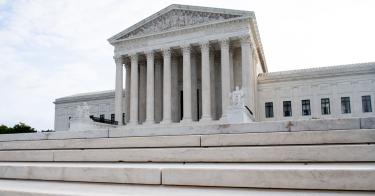The U.S. Supreme Court got it exactly right this past week in Chatfield v. League of Women Voters when it summarily dismissed a lower court ruling that the Michigan Legislature had violated the Constitution when it drew congressional and state legislative districts that the league and individual Democratic voters claimed favored the Republican Party.
The lower court ruling contravened the Supreme Court’s commonsense decision in June in Rucho v. Common Cause that partisan redistricting is a political question beyond the reach of the federal courts.
As Chief Justice John Roberts pointed out in Rucho, there are no manageable legal standards that courts can apply. Partisan redistricting is “nothing new,” and neither is “frustration with it.” It was known “in the colonies prior to independence and the framers were familiar with it at the time of the drafting and ratification of the Constitution.”
Yet the drafters of the Constitution still gave state legislature the authority to draw political boundaries, and did not give the courts any power to supervise this process. Politics will always play a role in redistricting. The question is: At what point do political considerations move from unacceptable to unconstitutional? There is no way to make such a determination.
In any event, the heart of the plaintiffs’ challenge in the Michigan case, as the Supreme Court said in Rucho, was based on a “desire for proportional representation” for political parties. In other words, they were arguing that if, for example, the Democratic candidate for statewide office gets 60% of the vote, then the party is entitled to 60% of the congressional and state legislative seats in that state.
That is an absurd notion. The Constitution does not guarantee proportional representation to political parties, and there is no historical basis whatsoever for claiming that the framers of the Constitution thought that proportional representation was required. As the Supreme Court said in Rucho, there is no way for a judge to determine what is the “appropriate” share of “safe” seats for political parties, and there are no “precise standards that are clear, manageable, and politically neutral.”
What was so odd about the Michigan lawsuit was that the redistricting plan in question went into effect in 2011, yet the league didn’t file its lawsuit until more than six years later — that's three election cycles.
Equally puzzling was why the lower court allowed the lawsuit to proceed. Apparently, the court accepted the bizarre notion that voters who couldn’t show any concrete, tangible injury still had standing to file a lawsuit simply because they felt “frustrated,” “less enthusiastic” about voting, or that their representative was “less responsive” to their concerns. That is the sort of generalized grievance that the federal courts have never considered sufficient to establish standing.
In addition to the fact that the Constitution doesn’t guarantee proportional representation to political parties, the claims about “partisan” redistricting ignore political geography. Many residents of Michigan live in areas that tend to vote overwhelmingly for Republican or Democratic candidates. No matter how neutral and nonpartisan you are in drawing maps, voters in those areas are going to be placed in districts that overwhelmingly vote for candidates of one party.
Partisan redistricting is often frustrating. But engaging in politics doesn’t violate the U.S. Constitution. Moreover, this is not a problem that can be, or should be, remedied by unelected federal judges who, unlike state legislators, are not accountable to voters for what they do. This is an issue to be resolved through the democratic process, including the implementation of better standards governing the drawing of political boundary lines.
The piece originally appeared in The Detroit News



